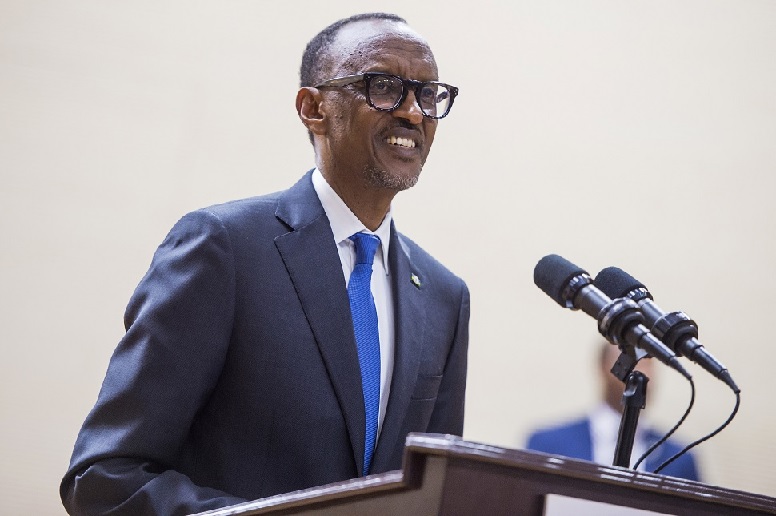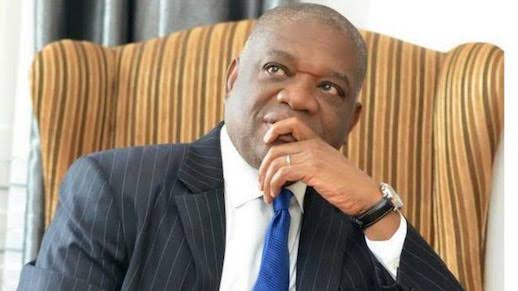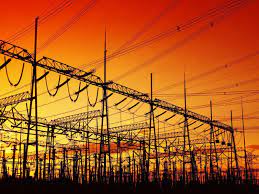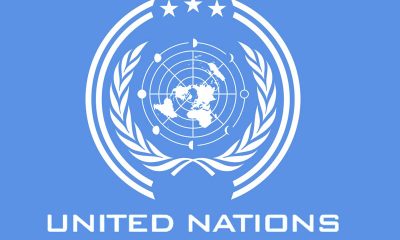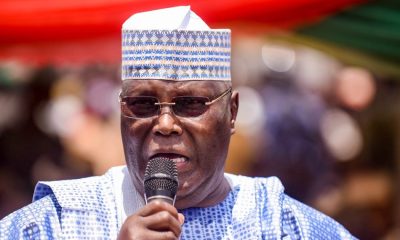Foreign News
Rwanda partners with IFC to develop vaccine manufacturing capacity

Rwanda Development Board (RDB) said it had signed a collaboration agreement with the International Finance Corporation (IFC) to facilitate development of vaccine manufacturing capacity in the country, and contribute to expansion of its production in Africa.
The development comes days after Rwanda announced its association with BioNTech, a leading biotechnology company, and the kENUP Foundation to explore establishing end-to-end manufacturing capability for mRNA vaccines, arising from the company’s Malaria and Tuberculosis vaccine development programmes on the continent.
In a statement on Friday, RDB said IFC would support Rwanda to conduct diagnostic and feasibility studies to ensure the right technical and policy frameworks needed to establish a world-class vaccine manufacturing supply chain in Rwanda to produce vaccines for local use and exports across Africa.
“Rwanda aims to produce high-quality vaccines for the African market.
“A production facility like the one envisaged in this collaboration agreement advances this objective,” Zephanie Niyonkuru, Deputy Chief Executive Officer of the RDB said in the statement.
Samuel Dzotefe, IFC’s Acting Regional Industry Director for Manufacturing, Agribusiness and Services in the Middle East and Africa, observed that Africa needed to develop and maintain its own reliable vaccine supply and health industry.
“This partnership with the Rwanda Development Board is a vital step toward helping Africa build vaccine manufacturing capacity to respond to COVID-19 and future pandemics,” said Dzotefe.
Other potential vaccine and pharmaceutical production facilities, including a fill-and-finish facility, are expected to be co-located with BioNTech in Kigali’s Special Economic Zone, according to the statement.
The African Union and the Africa Centers for Disease Control and Prevention are aiming to have about 60 per cent of Africa’s routine vaccines produced locally by 2040. Xinhua/NAN)
Foreign News
China Tightens Export Rules for Crucial Rare Earths

China has tightened export controls on rare earths and other materials critical for advanced tech manufacturing as trade negotiations continue with the US.
It processes around 90% of the world’s rare earths, which go into everything from solar panels to smartphones – a key bargaining chip ahead of an expected meeting between Chinese leader Xi Jinping and his US counterpart Donald Trump this month.
Beijing had already restricted processing technology and unauthorised overseas co-operation, but Thursday’s announcement formalised the rules.
Foreign companies now need the Chinese government’s approval to export products with even small amounts of rare earths and must explain their intended use.
The ministry announced similar restrictions on the export of lithium batteries and some forms of graphite, which are also essential components in the global tech supply chain and largely produced in China.
Beijing said the regulations are intended to “safeguard national security”. One of the main targets of these controls appears to be overseas defence manufacturers, including those in the US, who rely on rare earths from China.
China had added several rare earths and related material to its export control list in April, as the trade war with Washington ramped up, which caused a major global shortage.
But the new announcement makes clear that licenses are unlikely to be issued to arms manufacturers and certain companies in the chip industry.
Even the technology used to mine and process rare earths, or to make magnets from rare earths, can only be exported with permission from the government, the Commerce Ministry said.
Chinese firms are also banned from working with foreign companies on rare earths without government permission.
The latest announcement also clarifies the specific technologies and processes that are restricted.
These include mining, smelting and separation, magnetic material manufacturing, and recycling rare earths from other resources.
The assembly, debugging, maintenance, repair, and upgrading of production equipment are also prohibited from export without permission, the announcement added.
This could have a major impact in the US, which has a significant rare earths mining industry but lacks processing facilities.
The new regulations create Beijing’s version of US rules which block countries from selling chip-making equipment to China.
The US has used those measures to slow China’s development of powerful chips that could be used for artificial intelligence (AI) with military applications.
Trade expert Alex Capri believes China’s new regulations “are specifically timed” ahead of Xi and Trump’s expected meeting later this month.
Beijing has targeted key vulnerabilities in US electronics and weapons manufacturing, mirroring America’s earlier moves against China’s chip industry, he added.
Rare earths are a group of 17 chemically similar elements that are crucial to the manufacture of many high-tech products.
Most are abundant in nature, but they are known as “rare” because it is very unusual to find them in a pure form, and they are very hazardous to extract.
Although you may not be familiar with the names of these rare earths – like neodymium, yttrium and europium – you will be very familiar with the products that they are used in.
For instance, neodymium is used to make the powerful magnets used in loudspeakers, computer hard drives, electric car motors and jet engines that enable them to be smaller and more efficient.
China has a near monopoly on extracting rare earths as well as on refining them – which is the process of separating them from other minerals.
The International Energy Agency (IEA) estimates that China accounts for about 61% of rare earth production and 92% of their processing.
Foreign News
Madagascar President Asks for One Year to Resolve Problems or Resign

Madagascar’s President Andry Rajoelina has asked for one year to fix the country’s challenges, promising that if they persist, he will resign.
He said this during a town-hall style meeting at his palace with various groups of government supporters. Many attendees had the opportunity to ask the president questions or simply share their views – to which he responded.
“I don’t want flattery.
I want to hear the truth. It’s the people who kept telling me that everything was fine who are responsible for our current situation,” he said.The movement behind the protest, known as Gen Z Mada, has been calling for the president to resign – and rejected an invitation to attend the talks.
They argue that they cannot engage a government that has been repressing them as they demand basic human rights. The group has called for new protests on Thursday.
“We refuse the president’s invitation to talks. We will not engage in dialogue with a regime that represses, assaults, and humiliates its youth in the streets,” they wrote on their Facebook page.
At the expiry of their 48-hour ultimatum for the president to resign, the group called for a nationwide strike, although the details remain unclear.
They have vowed not to back down, urging people from all regions to join them and declaring that “the Malagasy people do not submit”.
Rajoelina has been holding these meetings as part of his pledge to “listen more”, emphasising that the challenges facing the Indian Ocean island nation can only be solved through honest conversations and not protests.
The president assured those at the dialogue that ongoing power projects would address the recurring outages by adding 265 megawatts to the national grid.
“I swear that if power cuts persist in the capital within a year, I will resign,” he said.
The protests began on 25 September triggered by anger over persistent power and water shortages, and have escalated into broader dissatisfaction over corruption, high unemployment and the cost-of-living crisis.
Last week, Rajoelina sacked his entire government and appointed an army general as prime minister on Monday. The protest movement rejected the appointment and vowed to continue their struggle.
Rajoelina came to power in 2009 after leading mass protests that triggered military intervention and overthrew then-President Marc Ravalomanana.
Although the youth-led movement continues to demand his resignation, street protests appear to have weakened.
Life in most parts of the capital, Antananarivo, continues as normal, except in a few neighbourhoods with a heavy police presence, where some roads have been blocked or are being closely monitored.
At least 22 people have died in clashes with security forces and scores more have been injured, according to the United Nations. The authorities have disputed these figures.
BUSINESS
Africa’s Infrastructure Deficit Takes Spotlight at Pre-G20 Event November

By David Torough, Abuja
Africa’s infrastructure challenges and investment opportunities will take center stage when global leaders, financiers and development experts gather in Johannesburg for a high-level side event ahead of the G20 Summit in November.
In a press release signed by its president/CEO, Dr.
Alfred Chiakor, on Thursday, the Africa Think Tank for Infrastructure Development (ATTID) announced that it will host the Infrastructure and Sustainable Development Side Event on Nov. 20–21 at the Capital Empire Hotel in Sandton.The meeting, themed “Enhancing Africa’s Infrastructure Transformation Agenda through Investments and Partnership,” will proceed the Nov.
22–23 G20 Summit of industrialized nation South Africa under the chairmanship of former President of the United Republic of Tanzania, Dr. Jakaya Mrisho Kikwete, with Nigeria’s President Bola Tinubu as Special Guest of Honour and Irina Unkovski , international PPP and infrastructure specialist, as the Keynote speaker.Organizers say the forum will bring together world leaders, executives of international development agencies, global banks, private investors, and regional economic commissions to chart a roadmap for transforming Africa’s infrastructure backbone. The gathering is expected to set the tone for deeper global partnerships at the G20 and beyond.
Africa’s infrastructure deficit remains one of the continent’s biggest barriers to growth, according to ATTID. The African Development Bank estimates that the region needs between $130 billion and $170 billion annually to meet its development goals in energy, transportation, water, sanitation, and urban systems. Poor infrastructure, officials note, has already cost African economies up to 40% in productivity losses and sliced two percentage points off annual growth.
Despite these gaps, the investment picture is shifting. Foreign direct investment (FDI) flows to Africa climbed from $53 billion in 2023 to $97 billion in 2024, or about 6% of global FDI, UN Trade and Development data show. North Africa led the inflows, buoyed by energy and transport projects, while sub-Saharan Africa saw rising intra-regional investment from players such as Dangote Group, MTN, and leading Nigerian banks.
Still, the continent faces steep hurdles. The World Bank reports that 22 African countries are at high risk of debt distress, and sub-Saharan Africa’s median debt-to-GDP ratio has nearly doubled since 2010. Weak road networks, underperforming railways, and costly transport logistics continue to stifle regional trade, which accounts for just 31% of commerce compared with 53% in emerging Asia.
ATTID leaders argue that innovative financing and partnerships are crucial. The side event will highlight successful models such as Egypt’s $10 billion Ras El Hekma megaproject with the United Arab Emirates, Ethiopia’s light rail system, and the AfDB-backed Enugu-Bamenda Highway linking Nigeria and Cameroon. Such initiatives, they say, prove Africa can deliver high returns for investors while addressing pressing development needs.
The forum’s agenda includes business sessions on financing models, regional linkages, and public-private partnerships. Organizers expect the meeting to generate new investment pipelines, strengthen advocacy for infrastructure funding, and foster collaboration between governments, international lenders, and private sector stakeholders.
“The side event provides an auspicious window to deepen intra-African and global investment,” said Dr. Chiakor. “It is a clarion call to investors to tap into Africa’s infrastructure transformation that promises enduring returns.”
By the close of the two-day summit, ATTID hopes to secure commitments that will accelerate
Africa’s integration into global value chains and position infrastructure development as a pillar of sustainable growth. Observers say the discussions in Johannesburg could shape Africa’s economic trajectory for decades, and help ensure the continent’s fast-growing population of 1.5 billion people benefits from inclusive development.
| ReplyForwardAdd reaction |

